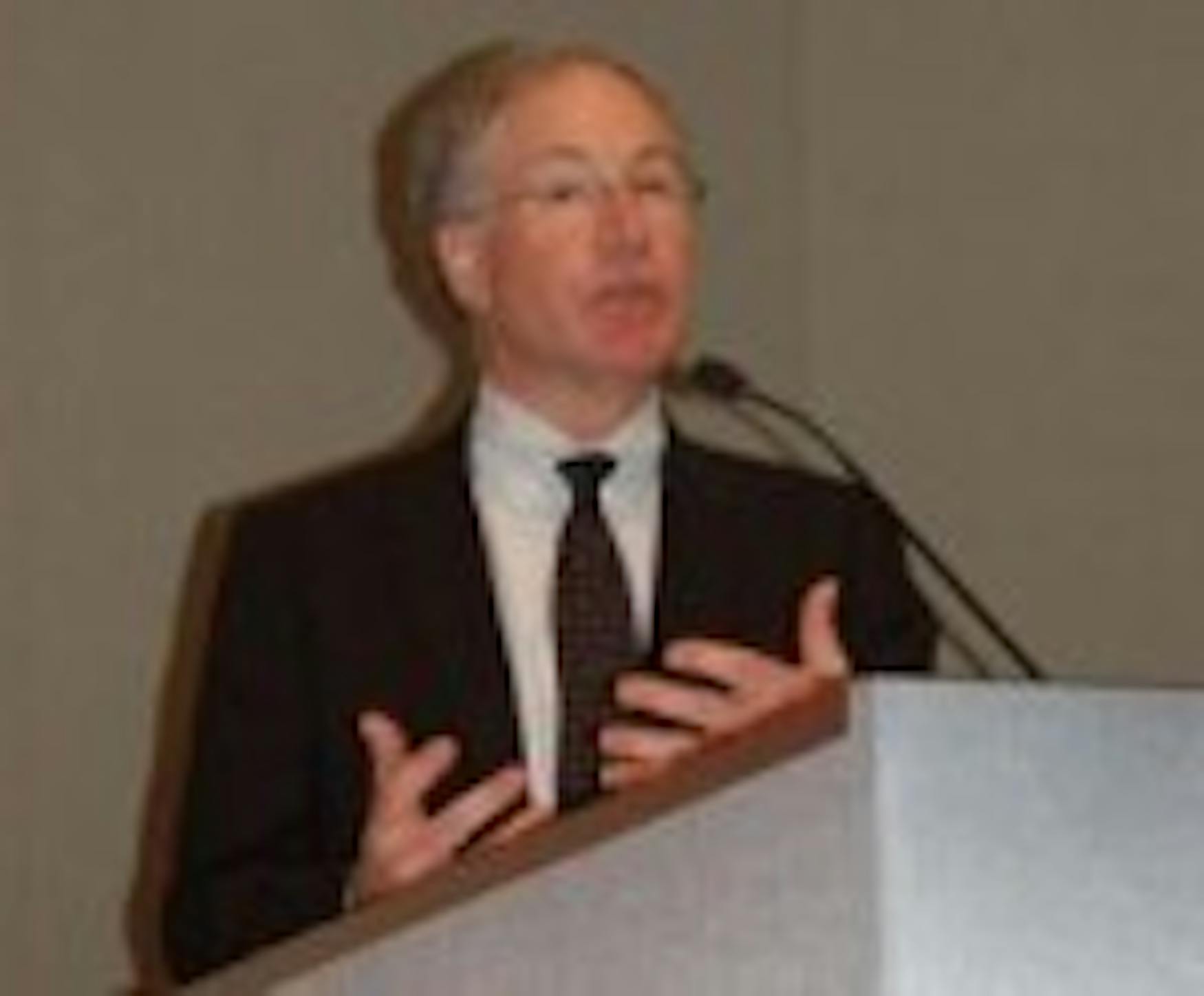Allan Brandt talks about the rise of cigarettes
Harvard University Medical School Prof. Allan Brandt '74 spoke about his recent book The Cigarette Century, which explores the ways cigarette- smoking has pervaded American culture at last Friday's Meet the Author event in the Shapiro Campus Center Multipurpose room.Prof. Stephen Whitfield (AMST), who taught Brandt at Brandeis and introduced him at the event, said Brandt's work demonstrated how personal conduct can have implications for the rest of society.
Brandt, the Amalie Moses Kass professor of the history of medicine at Harvard Medical School, said that he worked on the book for 25 years, exploring the full range of problems associated with cigarette-smoking that are "at the heart of American society and culture."
He outlined four main questions he explored throughout his research in order to understand the significance of smoking from the time cigarettes first became popular until now.
Brandt's first question was "How did smoking get to be so popular in the first place?" He used the example of his fascination with the Camel man, from an advertisement in New York City's Times Square, in which the mascot of Camel cigarettes blows smoke rings into the sky, to explain the pervasiveness of smoking at that time.
He said the shift to consumerist culture in the 1920s and '30s allowed cigarette companies to effectively use ad campaigns such as, "Indulge in a Lucky," whereas beforehand indulging was seen in society as a bad thing.
He talked about cigarette companies "manipulat[ing] media to change social mores," including influencing movie moguls to have actors smoking in their films. He said that the trend was, "If the cigarette doesn't fit the culture, we can change the culture."
Brandt's second question was how we know whether or not smoking is dangerous. He said that in the '40s, researchers began to evaluate the correlation between smoking and lung cancer. He said the attitude of tobacco companies was to say that they didn't know if there was a connection at all, and therefore they could not be held responsible.
"Once we know something," he asked, "what is the responsibility of the state to do something?"
Brandt said that in the 1960s, the surgeon general announced that "smoking causes lung cancer," but that cigarette packages were allowed to say, "Caution: Smoking may be hazardous to your health."
Brandt explained that industries actually seek to benefit from regulations because regulations allow them to argue in court that consumers were forewarned about the dangers of smoking, and therefore, the company cannot be held responsible.
Brandt's last question asked, "Who is responsible when someone gets sick from cigarette smoke?"
He said that the tobacco companies typically claim that they can't be blamed because cigarette consumers are knowingly taking a risk. Brandt said this is not a valid assertion because of the industry's knowledge about secondhand smoke, and how tobacco companies now works hard to appeal to kids through advertising and can even manipulate the quantity of nicotine in cigarettes to make it more addictive.
Brandt explained that for these reasons, the tobacco industry has "undermined the notions of individual responsibility." He said society continues to stigmatize smokers and blame lung cancer patients for smoking, but that this blame is misplaced.
Brandt concluded by saying that in our globalized world, tobacco companies have begun to reach out to countries in the developing world to boost their cigarette sales as people continue to quit smoking in the United States.
When asked by an audience member how he could seem optimistic about the situation, Brandt said, "This is a public health catastrophe," but explained that the more we understand about the dangers of smoking, the more we will generate the political and social efforts to make a difference.
"[Brandt] very brilliantly articulated from an interdisciplinary perspective the psychology and sociology of a major health epidemic," said Sarah Brin '08, an audience member.
Whitfield agreed, saying: "Prof. Brandt has written a remarkable book on the horrific consequences of an utterly unregulated, dangerous product that no citizen ought to ignore, given the lethal effects of cigarette smoking. Students will be living in a world in which, as Prof. Brandt predicted, deaths due to smoking-related diseases will be tragically increased in the future.



Please note All comments are eligible for publication in The Justice.